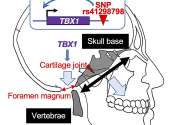Human evolution, or anthropogenesis, is the part of biological evolution concerning the emergence of Homo sapiens as a distinct species from other hominins, great apes and placental mammals. It is the subject of a broad scientific inquiry that seeks to understand and describe how this change occurred. The study of human evolution encompasses many scientific disciplines, most notably physical anthropology, primatology, archaeology, linguistics and genetics.
The term "human", in the context of human evolution, refers to the genus Homo, but studies of human evolution usually include other hominins, such as the Australopithecines. The Homo genus diverged from the Australopithecines about 2 million years ago in Africa. Scientists have estimated that humans branched off from their common ancestor with chimpanzees—the only other living homininis—about 5–7 million years ago. Several species of Homo evolved that are now extinct. These include Homo erectus, which inhabited Asia, and Homo neanderthalensis, which inhabited Europe.
Archaic Homo sapiens evolved between 400,000 and 250,000 years ago. The dominant view among scientists is the recent African origin of modern humans (RAO) that H. sapiens evolved in Africa and spread across the globe, replacing populations of H. erectus and H. neanderthalensis. Scientists supporting the alternative hypothesis on the multiregional evolution (ME) view modern humans as having evolved as a single, widespread population from existing Homo species, particularly H. erectus. The fossil evidence is insufficient to resolve this vigorous debate,. Studies of haplogroups in Y-chromosomal DNA and mitochondrial DNA have largely supported a recent African origin, while some researchers argue that evidence from nuclear genes supports a multiregional origin.









